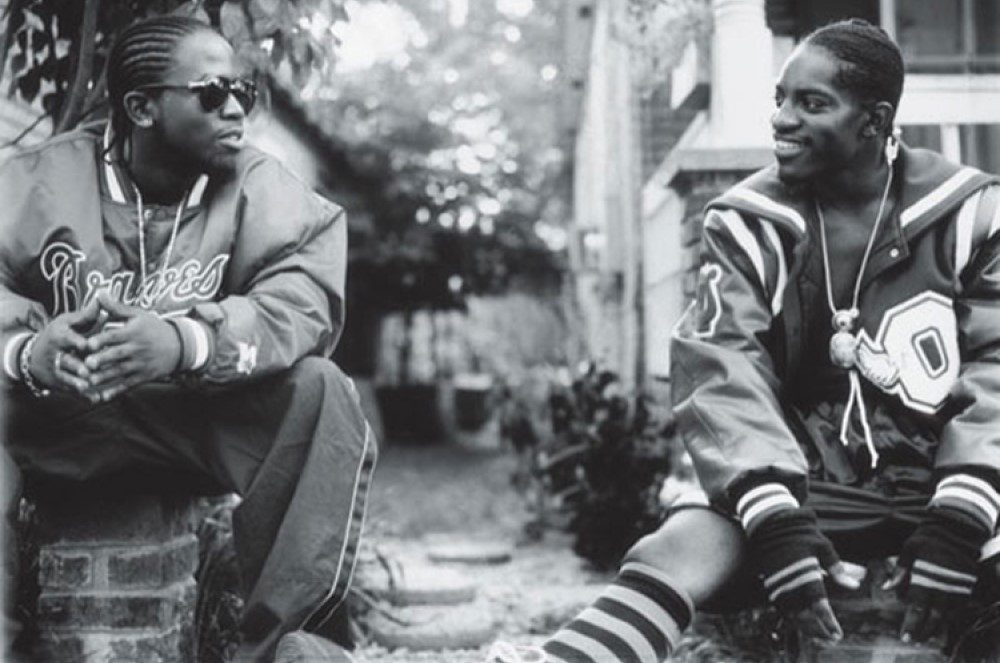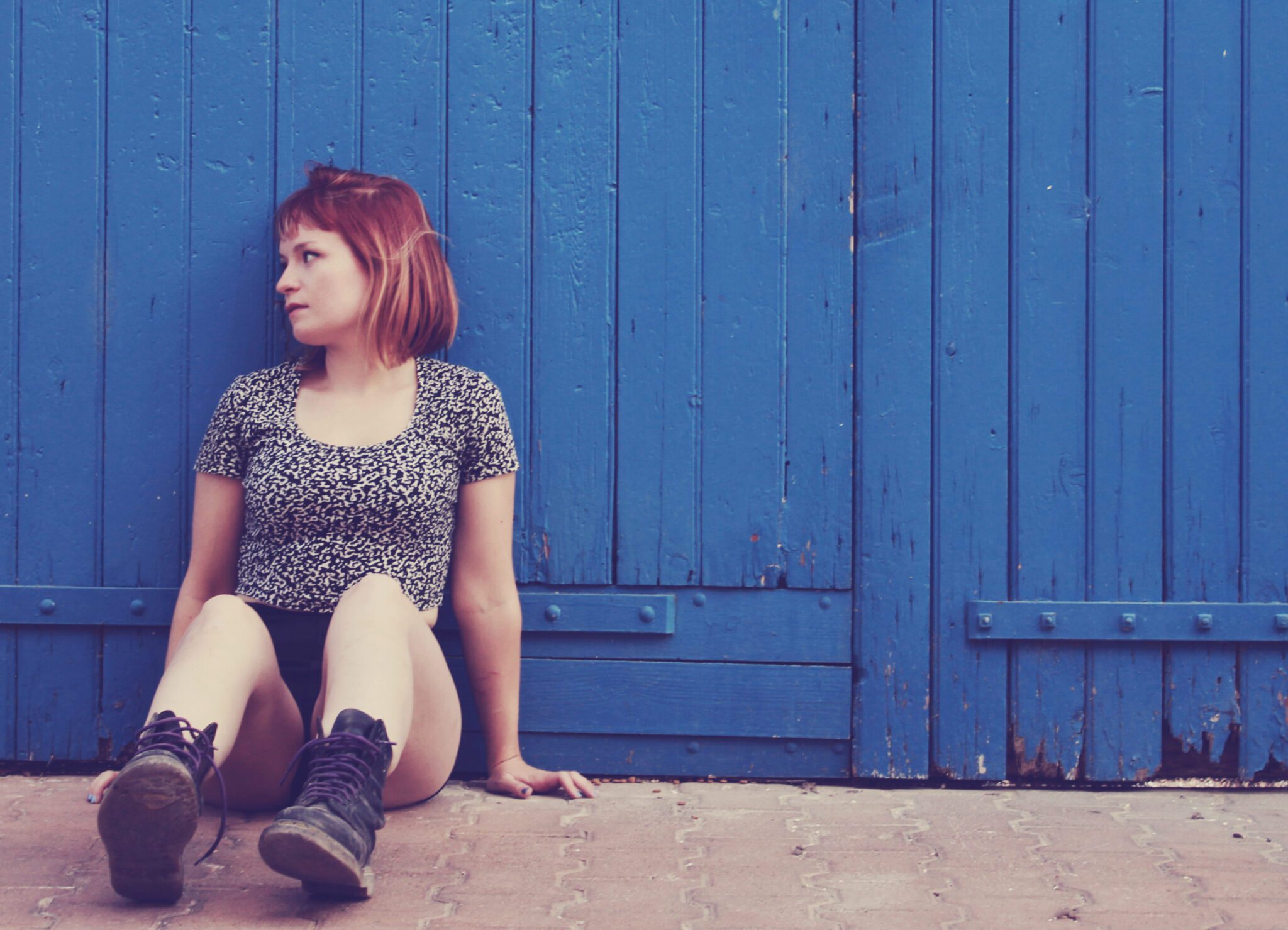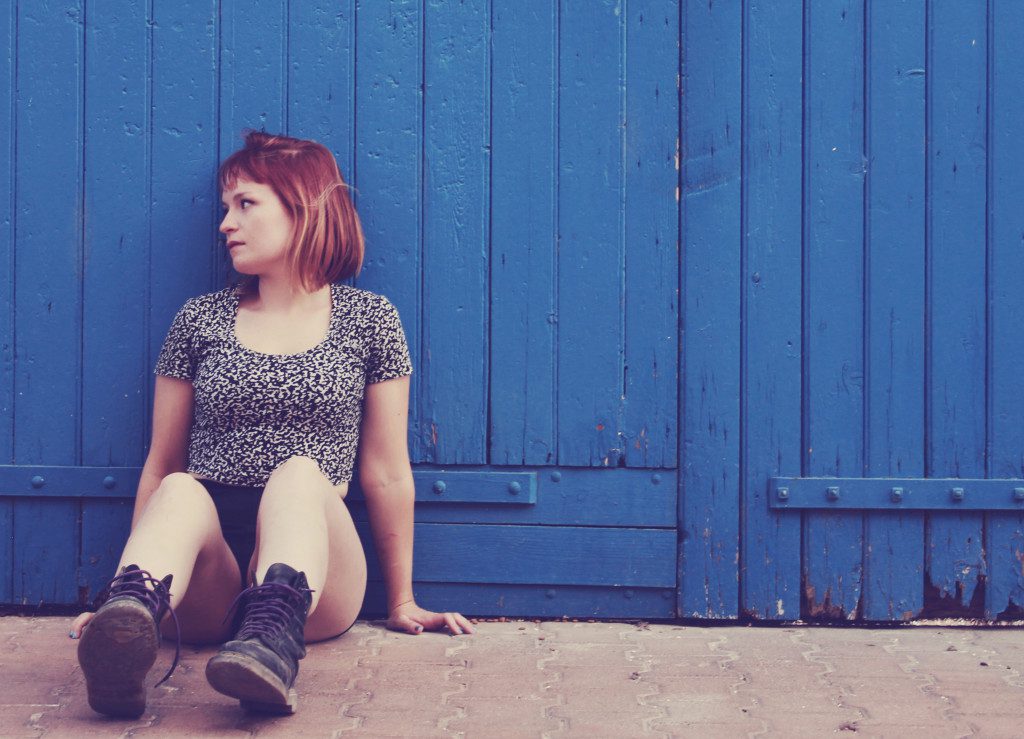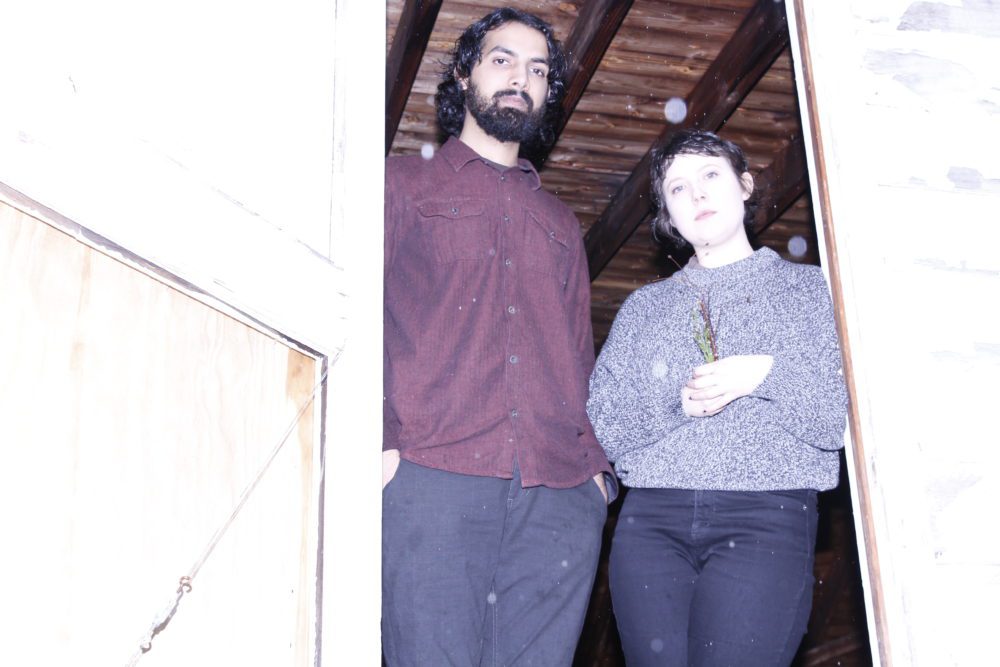
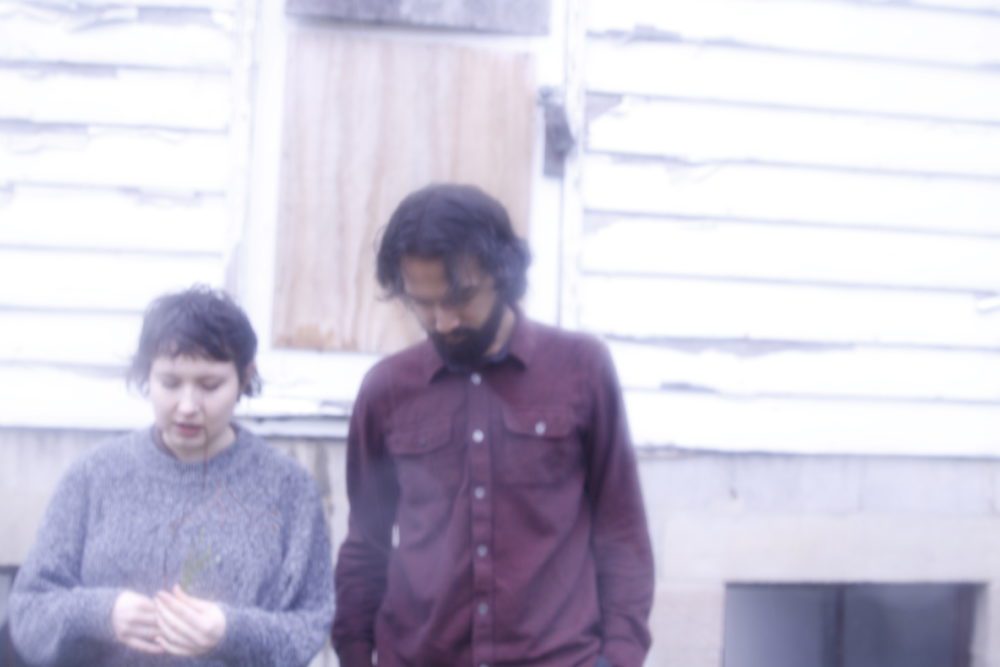
When I met Sea Offs months ago at my favorite coffee shop, I didn’t expect that our meeting spot would soon close down, or that I’d eventually write about the band while watching the children across the street play outside in hand-sewn masks. Similarly, Sea Offs didn’t anticipate debuting their first release in three years during a time of collective trauma. But if you’re feeling anxious (which, you probably are), Sea Offs’ new dream folk EP En Root offers a moment of solace in its delicately powerful declarations of vulnerability and self-acceptance.
En Root, with its silly wordplay, evokes slow, sturdy growth, which fits the EP well. But if Olivia Price and Rashmit Arora love anything as much as they love a good pun, it’s an unexpected song structure. Grounded with vocal harmonies and finger-picked guitars, En Root is soothing, yet never boring. You can sense the care that goes into the beautiful, multi-instrumental compositions of songs like “To Find Your Side” and “For Familiarity’s Sake,” but the duo is their best on “Will (You),” which recalls the emptiness of sex without intimacy. Price sings, “Will you make me doubt/My own amount/I lay complacent like a ragdoll.” Like the other songs on the record, it begins on the mellower side, yet unexpectedly erupts into a shouty (yet still beautiful) rejection of the bullshit and baggage that comes along with being treated as less than what you’re worth.
The following track, “Fight Song,” is surprising in a different way – recorded in one take, you can still hear the metallic scratching of the guitar as Arora and Price harmonize in the folkiest way. With their witty sense of humor, it makes sense that “Fight Song” is a raw meditation on arguing with those you love, rather than an aggressive chant. But, especially in uncertain times, there’s nothing better than a band that is soothing, yet exciting all the same.
Read what Olivia and Rashmit have to say about the new EP in the interview below.
AF: What has your experience working as a duo been like?
OP: Writing with someone, or doing anything artistic with someone, is such a vulnerable experience. You’re opening yourself up and your emotions up in so many ways that you really have to build that comfort with another person. I’ve played the odd solo set, like when Rashmit went back to India one summer… you become totally reliant on the comfort of having another body on stage with you that, [so] when you’re stripped of that, it’s like, “Oh my god, I don’t know how to talk to anyone.” It’s an interesting dichotomy that, to be an artist, you’re making a spectacle of yourself. And there has to be a degree of narcissism with being an artist where you have to have confidence in what you’re doing to showcase it. But at the same time, you’re so insecure and so afraid of being in the spotlight.
AF: It’s hard, because you have to take yourself seriously, but also not take yourself too seriously.
OP: Sometimes I wonder when you get writer’s block, if it is just a product of taking yourself too seriously, or you’re being too hard on yourself, versus just letting it be a judgement-free zone, letting it fall out, but you have all of these thoughts like, “You’re not good enough!” Even writing something down and not having a final product is fine too. It’s not time wasted if you don’t sit down and write a song. It was still valuable. I think that’s hard to get past – feeling like you need to produce something.
AF: How do you find the scenes different in State College, where you met, and Philly?
OP: I’ve never really felt comfortable playing house shows in any city, and I think it’s because I think the people are so trendy, and I’m like, “I want to be cool!” But that said, I feel like the folk scene in any community is just… to me, the most welcoming and down-to-earth people, and those are like, the living room shows! I always come away from those shows with friends, and I love the personal conversations that you have with people.
RA: There’s a lot more competition in Philly in order to get heard, but there’s also the fact that there’s such a good music community here is a big boost actually. I don’t know how much playing local shows actually adds up to you being a conventionally successful band these days. The measurements are changing, and how you get a following is moreso online, I think, than going to play a show where kids are just there to get drunk. But in Philly, people are there for the music, and that’s rare.
AF: It’s funny how there really is a huge difference between a basement show and a living room show.
OP: It’s a different crowdgoer, too. But I like more of a sitting-around-in-a circle-listening type of thing. Those shows that we’ve played with other local artists, I keep in touch with those people still, and any time I pass through their area I hit them up, and we’re just keeping up with each other’s music. I think there’s a lot of support. Once you do find your scene here, it’s very supportive, but it takes a little bit to find your crowd.
AF: The title of your EP En Root is a pun – is there any deeper meaning to it, or is it just funny?
OP: I mean, Sea Offs is kind of a pun too.
RA: We have a lot of puns. You know when you’re seeing someone off? But it’s the sea. You’re seeing off the sea, maybe? Climate change? I don’t know! The other pun – our first EP was called Sea the Blind. It’s just a play on words.
OP: For En Root, I think I just needed a title, and I was like… the phrase “en route,” I say that all time when I actually haven’t left yet, and it seemed appropriate, but then we were like, “Let’s just keep with the weird spellings.” Maybe it’s about feeling rooted.
AF: Speaking of plays on words, I like that you have a folk song called “Fight Song” on the record.
RA: That was a last minute song, and the recording is a one-take recording. We were both sitting on two sides of a figure-8 microphone so it captures sound on both sides. We have a video of us doing that.
OP: The song itself was about a fight, so it’s very literal in that sense, and even when we were trying to think of a title, Rashmit was like, “I think it’s funny that it’s going to be this rock anthem, but it’s not at all.” We like to throw in some little weird things.

AF: What are you excited to share with people from the EP?
OP: I think this was just the first thing we’ve done where we had a third party in on the process, a producer, someone mixing it. So Kyle Joseph is who we worked with, and he really forced us out of our comfort zone. On “Somehow,” the structure is totally different from where it started, and it’s so much better now, but it was such a fluid process where he really took the time to research what our influences were.
RA: Even on “Will (You),” the single, there’s this entire tempo ramp-up in the middle. The idea of doing a ramp-up came from him, and we wrote the music to get there.
OP: We had the space and resources to get weird on this one. We didn’t have to worry much about a time constraint. We could be in the room and be like, let’s try this.
RA: We had ten days in a studio in Brooklyn.
OP: We probably have a bit of a track record of writing long songs.
RA: But also, not having conventional song structure, because I am not into just the standard structure. I think we like writing things with two sections, but this might be one of the first explicitly A and B section song.
OP: The build up is really slow, but what I like about how it turned out is that it’s so atmospheric with the textures that keep getting introduced that I feel like, lyrically, there’s a part A and a part B, where the first half is your realization of the role in the relationship, and the last part is when you’re almost in this place of anger that you’re in that role, and I think the music reflects that.
AF: What Philly bands have you been into lately?
RA: One of the bands I really like is called No Stranger. It’s kind of a mathy rock band, very unlike Sea Offs. Friendship is awesome.
OP: Eliza Edens always has a special place in our hearts. When we released the last LP, we were both featured on The Key in the same listing, and her little tidbit was saying how she just moved to Philly, and that was around when I just moved here, so I reached out via email like, “We should be friends! I really like your music!” And then we met up, we’ve stayed in touch, played shows together, and she’s a wonderful songwriter.
AF: What makes Philly special to you?
OP: I like that everyone’s so down to Earth. I really do think it’s the brotherly love thing, where you can be total assholes to one another, but god forbid anyone else talks shit on a fellow Philly person – you’ll like, defend them to the grave.
Follow Sea Offs on Facebook for ongoing updates.

